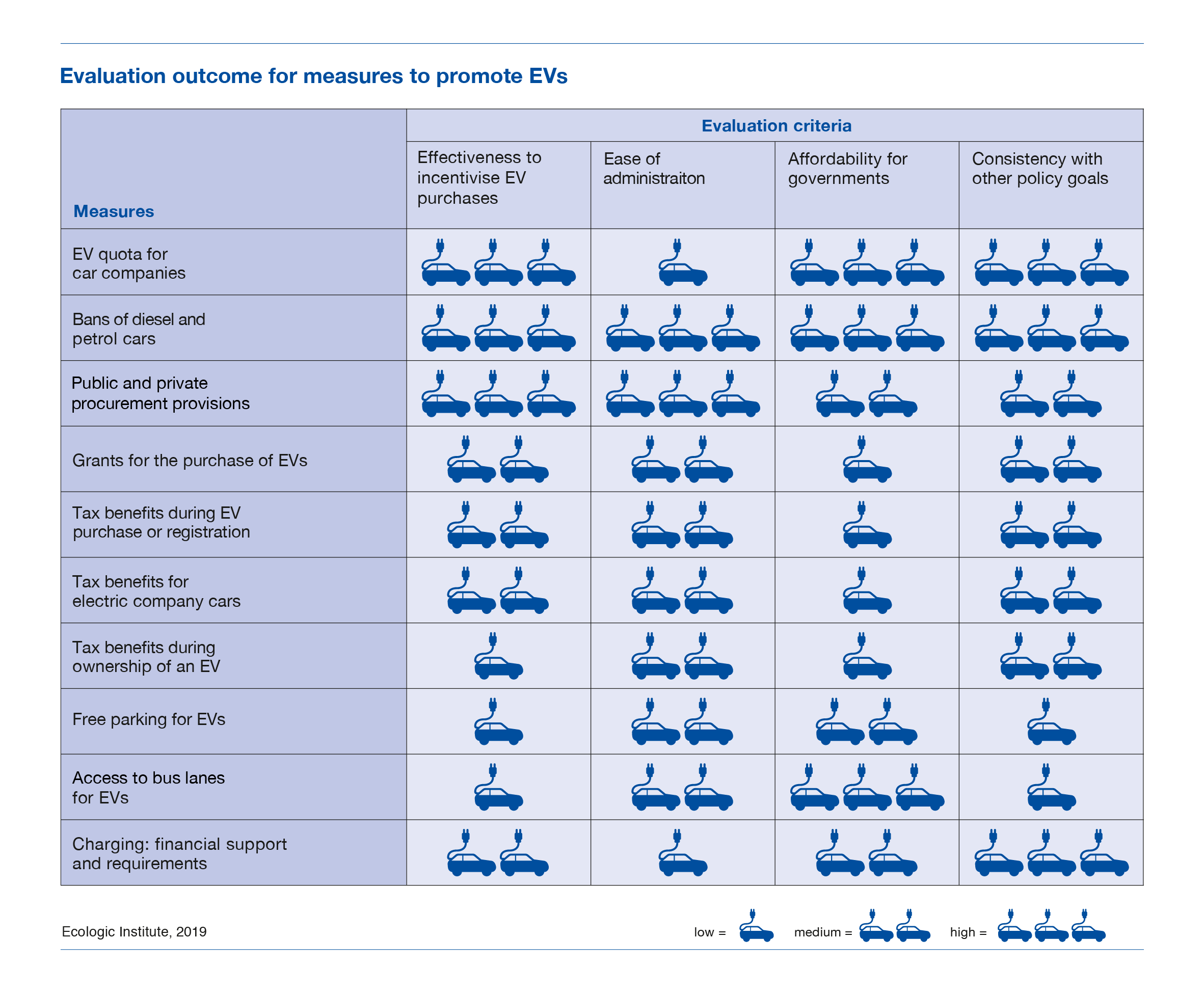The introduction of electric vehicles (EVs) is one way to significantly reduce emissions from cars — if combined with a transition to a renewable electricity system — thus helping countries meet their climate and air quality goals. Numerous governments around the world have already implemented or are considering measures to accelerate the uptake of EVs.
This study, commissioned by Greenpeace, analyses a range of existing measures that have a direct impact on the increased uptake of electric passenger cars with respect to 1) the measures’ overall effectiveness in incentivising EV purchases; 2) the ease of administering them; 3) affordability for governments; and 4) the consistency with other goals, mainly with the goal of reducing traffic.
The main findings of this study are:
- Making charging infrastructure available is crucial.
- Prescribing the use of EVs or phasing out internal combustion engine cars is most effective.
- Any support scheme needs to reflect rapid changes in the electric mobility sector.
- Combining measures and sequencing them over time is key for inducing full market transformation.
- Financial benefits for EVs are most effective when combined with disincentives for internal combustion engine cars.
- Governments should promote their EV support measures, ensuring their maximum usage.
The full study is available in English; the executive summary can be downloaded in different languages.
